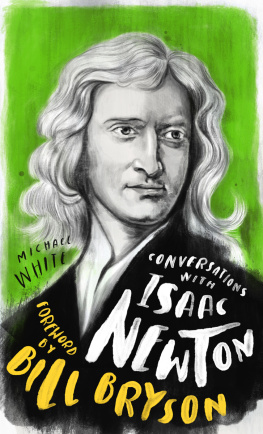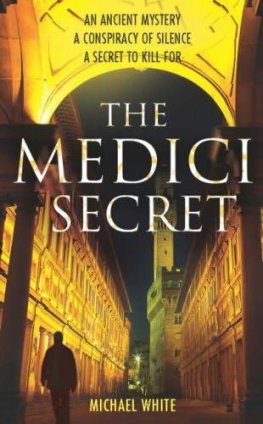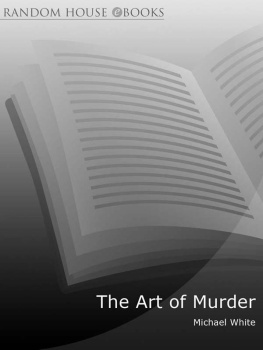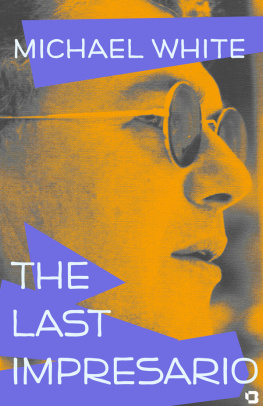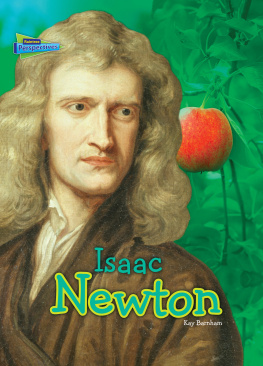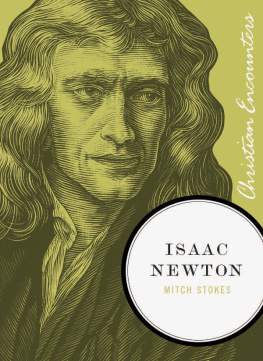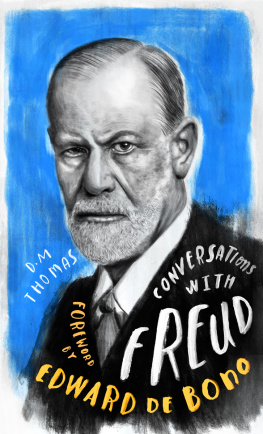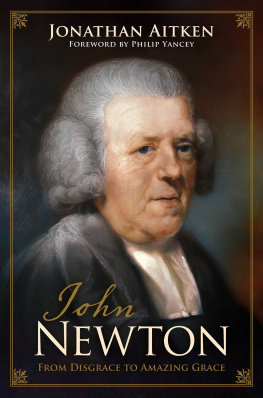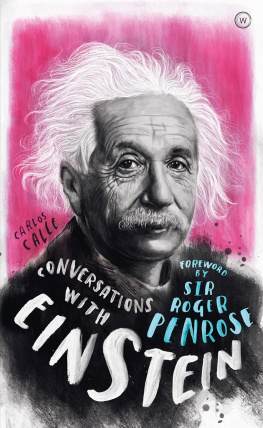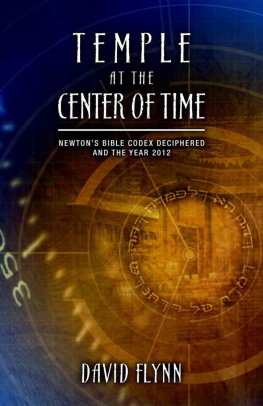

Note to the Reader : This book is divided into two parts: a biographical essay that provides a concise overview of Newtons life and achievements and a fictional dialogue based on rigorous research, incorporating Newtons actual spoken or written words, whenever possible, along with rigorously research biographical interpretations of his various views and positions.
Learn about key figures in science, spirituality, art and literature through revealing dialogues based on established fact. Written by a fantastic collection of authors and foreword writers gathered together to delve into the lives and achievements of some of the worlds greatest historical figures, this series is perfect for anyone looking for a quick and accessible introduction to the subject.
OTHER TITLES IN THE SERIES
Published
Conversations with JFK by Michael OBrien;
Foreword by Gore Vidal
Conversations with Oscar Wilde by Merlin Holland;
Foreword by Simon Callow
Conversations with Casanova by Derek Parker;
Foreword by Dita Von Teese
Conversations with Buddha by Joan Duncan Oliver;
Foreword by Annie Lennox
Conversations with Dickens by Paul Schlicke;
Foreword by Peter Ackroyd
Conversations with Galileo by William Shea;
Foreword by Dava Sobel
Forthcoming
Conversations with Einstein by Carlos I. Calle;
Foreword by Sir Roger Penrose
Conversations with Freud by D.M. Thomas;
Foreword by Edward de Bono

Originally published under the title Coffee with Isaac Newton 2008
This edition first published in the UK and USA 2020 by
Watkins, an imprint of Watkins Media Limited
Unit 11, Shepperton House
8993 Shepperton Road
London
N1 3DF
Design and typography copyright Watkins Media Limited 2020
Text copyright Michael White 2008, 2020
Foreword copyright Bill Bryson 2008, 2020
Michael White has asserted his right under the Copyright, Designs and Patents Act 1988 to be identified as the author of this work.
All rights reserved.
No part of this book may be reproduced or utilized in any form or by any means, electronic or mechanical, without prior permission in writing from the Publishers.
10 9 8 7 6 5 4 3 2 1
Typeset by JCS Publishing Services Ltd
Printed and bound by TJ International Ltd, Padstow, Cornwall
A CIP record for this book is available from the British Library
ISBN: 978-1-78678-383-7
www.watkinspublishing.com
Publishers note: The interviews in this book are purely fictional, while having a solid basis in biographical fact. They take place between a fictionalized Isaac Newton and an imaginary interviewer.
CONTENTS
FOREWORD BY BILL BRYSON
In a basement room of the Royal Society in London, Joanna Corden, the societys friendly archivist, opens a white box and gently lifts out one of that learned institutions most venerated relics: the death mask of Isaac Newton, made on the evening of his death in 1727.
It ought to be a thrilling moment this is, after all, the closest we can come to the physical presence of the most fertile and intriguing mind of its age and yet, as Corden had promised, there is something oddly disappointing in Newtons impassive visage. You dont expect a death mask to be terribly expressive, of course, but this one has an almost determined blankness to it.
Even in death, notes Corden, he didnt give much away.
We stare respectfully at the mask for half a minute, then she returns it to the box and replaces the lid, and I realize that already Im beginning to forget what he looked like.
Perhaps no great figure in history has been harder to know and understand than Isaac Newton. Indeed he is doubly unknowable first because of the complexity of so much of his science and second because of the secrecy and very real oddness with which he conducted so much of his life. Here is a man who spent three decades as an academic hermit in Cambridge, as withdrawn from worldly affairs as one could be, but then in late middle age became a fted public figure and comparative gadfly in London. He could unpick the most fundamental secrets of the universe, yet was equally devoted to alchemy and wild religious surmise. He was prepared to invest years in embittered fights over credit for the priority for discoveries, yet cared so little for conventional adulation that his most extraordinary findings were sometimes kept locked away for decades. Here is, in short, a man who was almost wilfully unknowable.
Corden brings out another of the Societys treasures a small reflecting telescope made by Newton himself in 1669. It is only six inches long but exquisitely made. Newton ground the glass himself, designed the swivelling socket, turned the wood with his own hand. In its time this was an absolute technological marvel, but it is also a thing of lustrous beauty. The man who made this instrument had sensitivity and soul as well as scientific genius.
Its strange, isnt it, says Corden, reading my thoughts, that you can feel more in his presence from one of his instruments than from his own death mask.
There really never was a more private man. So how lucky we are to have this volume in which Michael White deftly brings this impossible character to life, and makes his frequent wild actions and wayward notions seem almost reasonable. Even better, White conveys to us Newtons most challenging scientific concepts in terms that render them logical and wondrously, instantly comprehensible, and in so doing he fully captures the excitement, satisfaction and very real beauty of scientific discovery.
So prepare yourself for an unusual treat. You are about to enter one of the greatest minds in history.

INTRODUCTION
Isaac Newton was a man who transcended the age in which he lived, and in terms of his influence on the modern world, he is without peer. He formulated the theory of gravity, devised a radically new theory of light and created a calculus that would revolutionize mathematics. His most famous work, Principia Mathematica , is arguably the most important scientific book ever published: it explains his theory of matter in motion, which, a generation after his death, sparked the Industrial Revolution.
Newton achieved a phenomenal amount in one lifetime, and he really had several careers. He was a scientist and a mathematician who later became an administrator, serving first as a Member of Parliament, then as master of the Royal Mint. Late in life, he turned the Royal Society from a dilettantes club into an eminent scientific organization. Although he was extremely pious and a devout Christian, he was thoroughly unorthodox in his religious beliefs and spent much time exploring aspects of arcane knowledge, including the taboo subject of the occult.
The premise of this book is a conversation between myself and Isaac Newton. The setting is left to the imagination of the reader, but we may assume that the interview takes place at the very end of Newtons life when he is able to reflect on his achievements and the key events of his time.
Newton was a disagreeable man who was often unpleasant and antisocial; consequently, he had few friends. He relied entirely upon his own counsel and one had to work hard to earn his respect. He might have been resistant to a conversation such as the one here, but equally, he liked others to know of his brilliance, a commodity he possessed in abundance.
Next page
